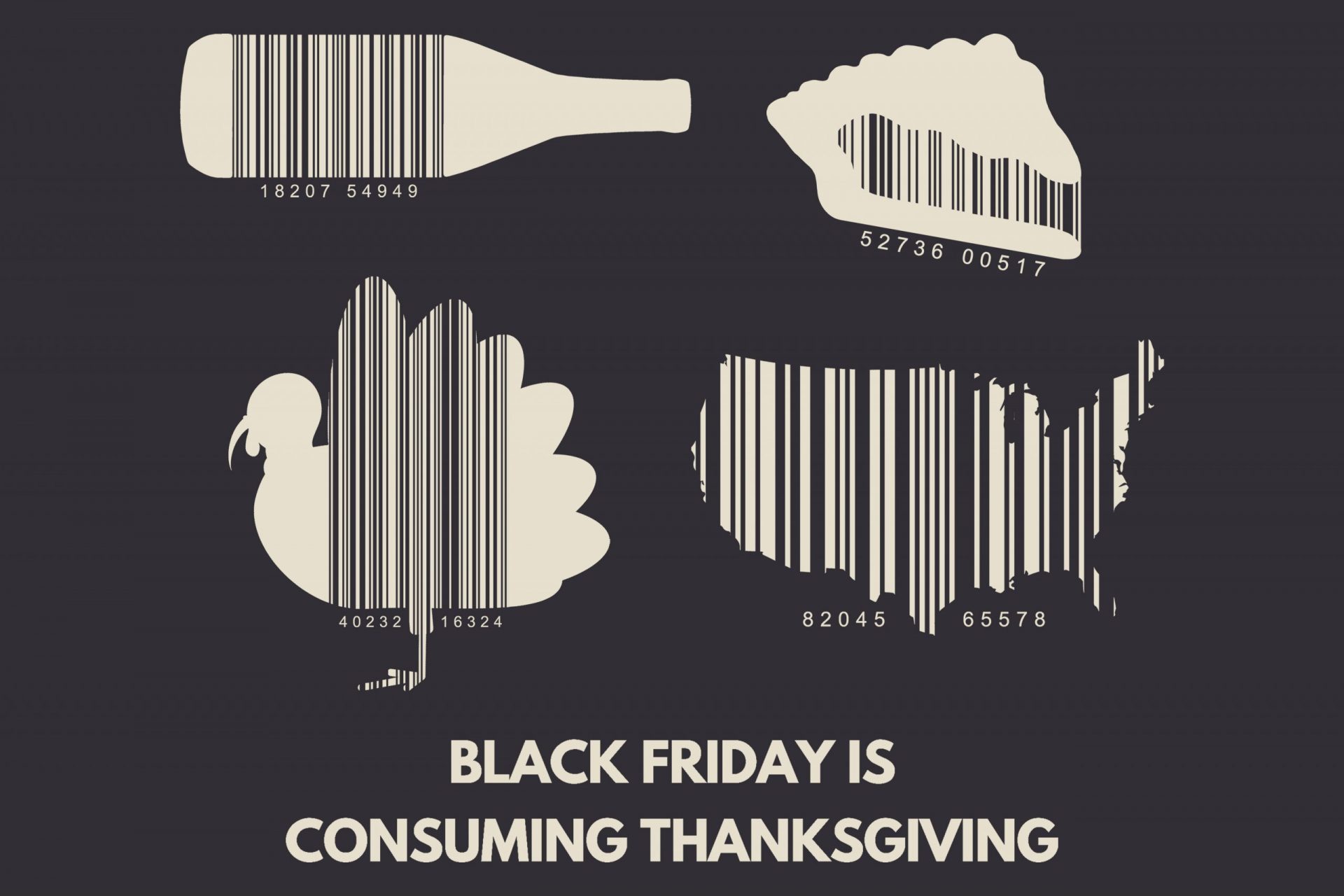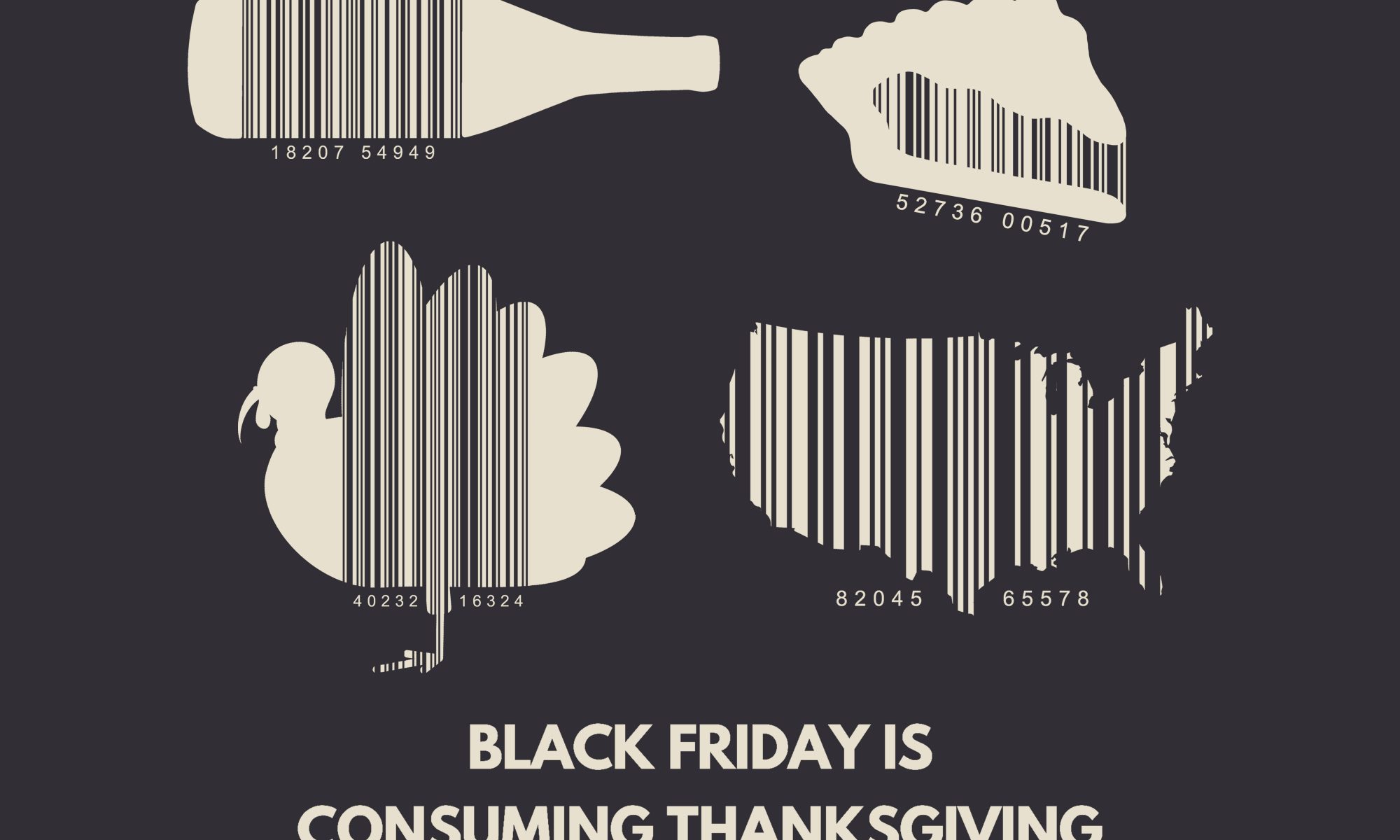
Family. Gratitude. Food. Football. In the modern age, this is what Thanksgiving has come to mean to Americans. These four attributes are good, wholesome and fun things to celebrate, but within the past decade, the spirit of Thanksgiving has been overrun by the unrelenting machine of American consumerism.
Black Friday is no longer just Black Friday. The shopping craze is oozing into the holiday, as more and more stores expand their sales. This year, major retailers like Target, Best Buy, JCPenney, Macy’s and Kohl’s opened their doors as early as 2 p.m. Thursday afternoon.
Black Friday has its roots in Philadelphia football. In the 1950s, Philadelphia police coined the phrase for the shopping havoc the day before the Army-Navy football game that happened every year on the Saturday after Thanksgiving. Officers had to work longer shifts to address the additional crowds and traffic, along with the shoplifters who took advantage of the chaos. Since then, retailers have promoted the notion that stores operating at a loss, or “in the red,” finally return “to the black” and earn a profit on that particular Friday.
The consumerist mindset has only proliferated since these first years. The American economic system relies on our desire for things and the high that comes with a fresh purchase. Retail therapy promises to solve our problems with new things. Advertising says we can improve our social standing by buying certain products. Everywhere we turn there’s another opportunity to consume.
While spending money stimulates the economy, it also divides us from each other. Black Friday in particular draws out the competitor, arguably the animal, inside all of us in order to reach the shelf first and get a better deal than everyone else.
It’s ironic that a nationally recognized day of being thankful for what we have—the people, things and opportunities we’ve been blessed with—is now being consumed. Even Thanksgiving Day is a chance to consume as much food as we can, stuffing ourselves until the belts come unbuckled and Grandpa passes out on the couch in a massive food coma.
This is the definition of American culture: filling ourselves until we feel as though we might burst and then spending money on material goods for the sole reason that they’re on sale.
We have traded the fellowship of sharing a meal with family and friends for the adrenaline rush of yanking a flat-screen TV from the hands of an elderly woman.
We are all guilty of the materialism that comes with American society, and we cannot place the blame on retailers alone. We are the ones producing the demand for more hours and sales. To return Thanksgiving to the basic ideals it was meant to have, we must recognize our own consumerist tendencies and break out of them.
Kayla Mayer can be reached at maye8518@stthomas.edu.



